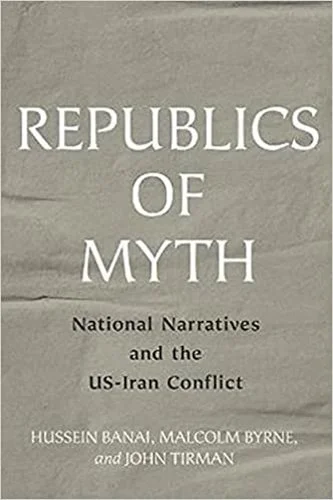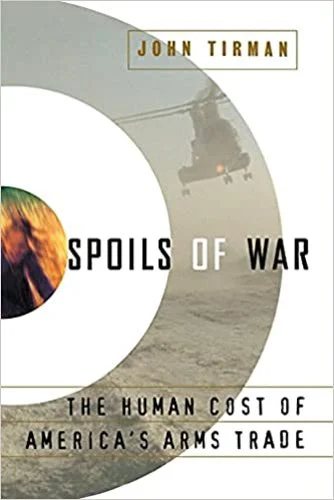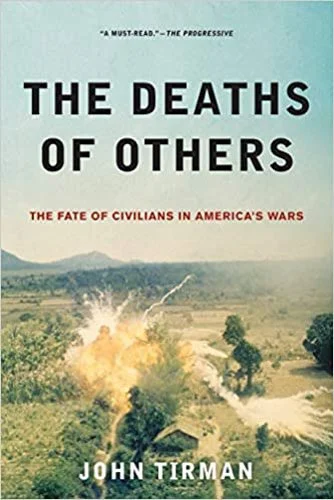Estate of John Tirman
John Tirman (1949-2022) was executive director of MIT's Center for International Studies. He was the author, or coauthor and editor, of nine books on international affairs. His work has appeared in the New York Times, the Washington Post, The Nation, the Wall Street Journal, and the International Herald Tribune.
For more information about John Tirman:
News
John Tirman’s latest book, Republics of Myth, now available through John Hopkins University Press.
Books
Spoils of War: The Human Cost of America's Arms Trade
One of the most important stories that's rarely in the newspapers is the foreign sales activities of American defense contractors. But an important issue it is, as illustrated by this book. Spoils of War focuses on the overseas marketing of helicopters to Turkey, which results in nice profits for Sikorsky, but has awful consequences for the Kurdish refugees they're used against. John Tirman, active in left-wing think-tank and publishing circles, makes the case that the main result of U.S. arms makers' market-making for weapons that the Pentagon doesn't want is a Third World human rights fiasco--one that, despite the company line, doesn't really help state and local economies.
(Free Press, June 1997)
The Deaths of Others: The Fate of Civilians in America's Wars
Americans are greatly concerned about the number of our troops killed in battle--100,000 dead in World War I; 300,000 in World War II; 33,000 in the Korean War; 58,000 in Vietnam; 4,500 in Iraq; over 1,000 in Afghanistan--and rightly so. But why are we so indifferent, often oblivious, to the far greater number of casualties suffer by those we fight and those we fight for? This is the compelling, largely unasked question John Tirman answers in The Deaths of Others.
(Oxford University Press, July 2011)
Republics of Myth: National Narratives and the US-Iran Conflict
Why does the rift between the US and Iran persist?
Iran and the United States have been at odds for forty years, locked in a cold war that has run the gamut from harsh rhetoric to hostage-taking, from crippling sanctions to targeted killings. In Republics of Myth, Hussein Banai, Malcolm Byrne, and John Tirman argue that a major contributing factor to this tenacious enmity is how each nation views itself. The two nations have differing interests and grievances about each other, but their often-deadly confrontation derives from the very different national narratives that shape their politics, actions, and vision of their own destiny in the world.
The dominant American narrative is the myth of the frontier―that the US can tame it, tame its inhabitants, and nurture democracy as well. Iran, conversely, can claim two dominant myths: the first, an unbroken (but not for lack of trying) lineage back to Cyrus the Great, and the second, the betrayal of Imam Hussein, the Prophet's grandson. Both Iranian myths feature a detestable outsider as an enemy of the Iranian state and source of the nation's ills and misfortune. The two countries have clashed so severely in part, the authors argue, because their national narratives constantly drive them to do so. Drawing on newly declassified documents and discussions with policymakers, the authors analyze an array of missed opportunities over several decades to improve the US-Iran relationship.
From the coup d'état that overthrew Iran's legitimate premier Mohammad Mosaddeq to the hostage crisis, the Iran-Iraq War, the 1996 Khobar Towers bombing, post-9/11 antagonisms, and other points of conflict, each episode illustrates anew the weight of historical narratives on present circumstances. Finally, Barack Obama's diplomacy and Donald Trump's determination to undo the 2015 nuclear accord are explored―both examples of the enduring power of America's frontier narrative. Introducing new insights and knowledge in a highly readable narrative, Republics of Myth makes a major contribution to understanding this vital conflict.
(John Hopkins University Press, April 2022)



